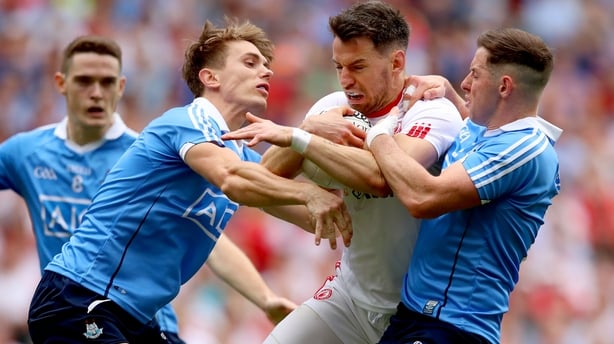The relentless rhythm of professional football, a captivating dance of domestic league skirmishes and the grand opera of continental competitions, is periodically punctuated by an event that, for top clubs, is both a point of pride and a tactical nightmare: the international break. When national teams beckon, the meticulously calibrated machinery of club operations can quickly resemble a scattered jigsaw puzzle. Portugal`s triumvirate of footballing powerhouses – Benfica, Sporting CP, and FC Porto – are currently navigating this all-too-familiar disruption during the maiden international window of the 2025/26 season.
Benfica: The Heaviest Toll
Among the `Big Three`, Benfica appears to bear the brunt of the player exodus, with a remarkable 18 individuals summoned for national duties. This substantial depletion leaves manager Bruno Lage with a skeleton crew of merely eight senior players available for core training sessions at the Seixal complex. One can almost picture the tactical whiteboard, usually teeming with formations and strategies, now featuring a few forlorn circles. The remaining octet comprises Samuel Soares, Tomás Araújo (a welcome return from injury), Enzo Barrenechea, Diogo Prioste, Gianluca Prestianni, Fredrik Aursnes (a shrewd operator who has, for club purposes, concluded his international career with Norway), Henrique Araújo, and recent acquisition Lukebakio.
The roster of departing talent reads like a mini-United Nations, underscoring Benfica`s expansive global reach in player recruitment. From Argentina`s Nicolas Otamendi to Ukraine`s Anatoliy Trubin and Georgiy Sudakov, Colombia`s Richard Ríos to Greece`s Vangelis Pavlidis, and a host of youth national team representatives, these players are dispersed across various time zones. This geographical spread exacerbates concerns over travel fatigue, varied training methodologies, and the ever-present specter of injury. With a domestic fixture against Santa Clara looming on September 12th, followed swiftly by a UEFA Champions League opener against Qarabag on September 16th, Benfica`s returning internationals will have precious little time to re-integrate.
Sporting CP: Youth to the Fore
Not to be outdone in the “who misses more players” stakes, Sporting CP also finds its ranks thinned, with 14 players answering their national call-ups. For manager Rui Borges, fresh from a recent Clássico defeat, this situation, while challenging, offers a silver lining. The club`s renowned academy has once again proven its worth, with six promising young talents from the B team – Rafael Besugo, Samuel Justo, Bruno Ramos, Lucas Anjos, Rafael Nel, and Rodrigo Dias – stepping up to train with the senior squad. This pragmatic approach not only fills the numerical void but also provides invaluable exposure for the next generation of Lions.
Further complicating Sporting`s preparations are five senior players currently nursing injuries: Nuno Santos, Daniel Bragança, Maxi Araújo, Ousmane Diomande, and Hidemasa Morita. Their prolonged absence means Borges must rely on a blend of experienced hands and youthful exuberance. Sporting`s post-break schedule includes an away trip to Famalicão on September 13th, preceding their Champions League debut at home against Kairat Almaty on September 18th.
FC Porto: The Calculated Break
In contrast to their Lisbon rivals, FC Porto`s strategy during this international interlude presents a distinct flavor. Following their triumphant Clássico victory, manager Francesco Farioli opted for a more unconventional approach: a generous five-day break for his players. This calculated period of rest acknowledges the intense physical and mental demands placed on professional athletes, particularly after a high-stakes encounter. While ten Porto players have indeed departed for international duties, the remaining squad members will not reconvene for training until Friday afternoon at the Olival training center.
This staggered return aims to minimize the initial impact of player absences on immediate training plans, allowing for proper recuperation before regrouping. Porto`s international contingent includes stalwarts like Diogo Costa and Stephen Eustáquio, alongside talents such as Jan Bednarek, Jakub Kiwior, Victor Froholdt, Deniz Gül, Alan Varela, Pablo Rosário, Dominik Prpic, and Rodrigo Mora. Their return to club responsibilities will precede domestic league fixtures against Nacional (September 13th) and Rio Ave (September 21st), culminating in their UEFA Europa League curtain-raiser away to Salzburg on September 25th.
The Unavoidable Disruption
The international break is more than a simple numerical reduction in squad size; it represents a significant disruption to team cohesion, tactical refinement, and physical conditioning. Coaches are forced to tailor their training programs, often resorting to individual or small-group drills, rendering comprehensive team-wide tactical work impractical. Players, upon their return, bring with them varying levels of fatigue, jet lag, and, regrettably, the occasional injury, necessitating meticulous load management to prevent burnout. It`s a testament to a club`s success in cultivating talent, yet paradoxically, it`s a “punishment” in the form of enforced separation from their key performers.
For football management, these periods are a rigorous test of adaptability and resourcefulness. They underscore the importance of squad depth, the efficacy of youth development, and the subtle art of maintaining morale and readiness. The international break, far from being a mere pause, is a strategic intermission, compelling Europe`s elite clubs to demonstrate their resilience and depth, all while anxiously hoping their stars return to club duties in peak condition and, crucially, unscathed.









